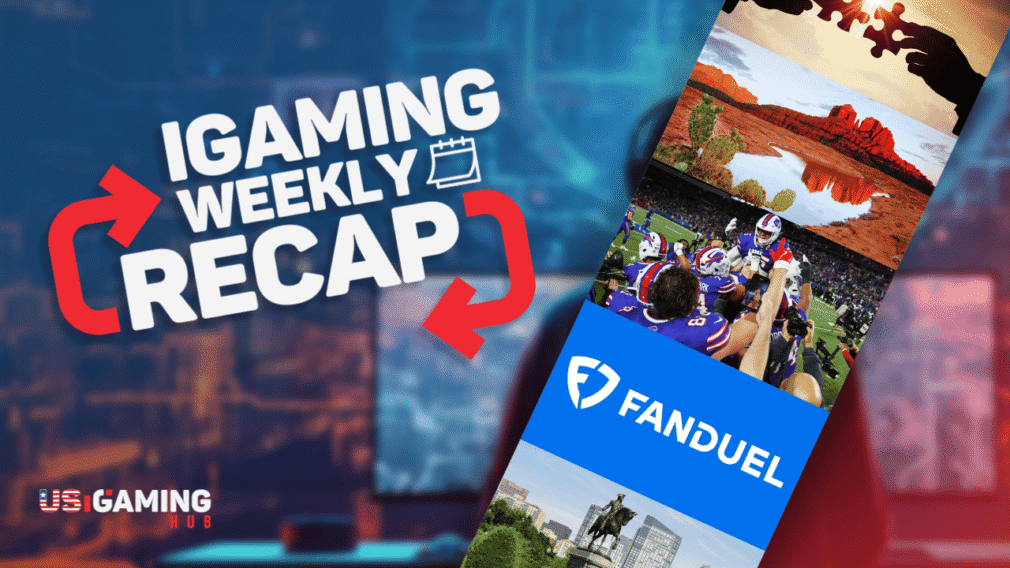iGaming Weekly Recap (September 15–21, 2025): Arizona Warns Against Prediction Markets
Two sweepstakes advocacy groups join forces after a setback in California, Arizona warns companies against engaging in event contract activities, and Robinhood launches a preemptive legal strike against Massachusetts following the Attorney General’s lawsuit against Kalshi. As always, sweepstakes and prediction markets saw plenty of action, but that’s not all that happened this week.

Two major advocacy organizations for promotional sweepstakes gaming have merged, with the Social and Promotional Gaming Association (SPGA) joining the Social Gaming Leadership Alliance (SGLA). This consolidation aims to bolster the industry’s lobbying efforts amid mounting legal and regulatory pressure. The merger directly responds to legislative challenges, including California’s AB 831, which, if signed by Governor Gavin Newsom, would ban sweepstakes casinos in the state. Similar legal battles are emerging in Nevada, New Jersey, and New York. The unified group seeks to provide policymakers with a stronger, more cohesive voice to shape political debates, counter restrictive regulations, and respond swiftly to new legislation by pooling legal, compliance, and public relations resources.
The Arizona Department of Gaming (ADG), led by Director Jackie Johnson, issued stern warnings about the risks of prediction markets, also known as “event contracts,” targeting both licensed operators and consumers. The ADG cautioned that Arizona-licensed entities associating with firms offering illegal event contracts in other jurisdictions could jeopardize their state licenses. The agency stated that unauthorized prediction market activities violate state law and could serve as a “poison pill” for future licensing decisions.
DraftKings recorded its “worst single game outcome in company history” and its largest single financial loss since entering the U.S. market in 2018, following the Buffalo Bills’ dramatic Week 1 NFL victory over the Baltimore Ravens. The losses stemmed from the Bills’ “stunning comeback,” overcoming a 15-point deficit to score 22 consecutive points in the fourth quarter, ultimately winning 41–40 after being listed as a +2000 underdog. The scale of the losses was massive, as bettors wagered heavily on Buffalo’s moneyline and won bets in 28 of the 30 most popular markets tied to the game.
FanDuel struck a new deal with Delaware North to bring online sports betting and iGaming to West Virginia through the Mardi Gras Casino & Resort in Cross Lanes. The partnership integrates FanDuel’s betting and iGaming platforms with Delaware North’s casino and hospitality operations. This collaboration strengthens FanDuel’s presence in West Virginia, providing the operator with a second anchor in the regulated state alongside The Greenbrier Resort.
Robinhood filed a federal lawsuit against the Massachusetts Gaming Commission (MGC) and the state’s Attorney General, launching a “preemptive legal strike” to protect its new sports-based prediction market product. The action was prompted by Massachusetts’ recent lawsuit against Kalshi, which accused the platform of operating as an unlicensed bookmaker while explicitly naming Robinhood as a key distribution partner that sold approximately “$1 billion” worth of Kalshi contracts in Q2.
Facing a “real and imminent threat” of similar legal action, Robinhood argues that state gambling laws do not apply, as event contracts fall under the “exclusive jurisdiction” of the federal Commodity Futures Trading Commission (CFTC) per federal preemption. Robinhood seeks a federal injunction to prevent Massachusetts from regulating this trading, contending that state intervention would violate the Supremacy Clause of the U.S. Constitution.
Recommended





